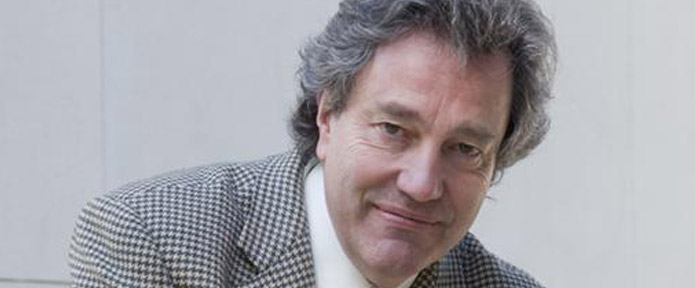20180220_MUN_EntrevistaEncinar
José Ramón Encinar, director orchestra: "The current Spanish compositional panorama is enormously rich".
José Ramón Encinar (Madrid, 1954), winner of the award Nacional de la Música, Plural Ensemble in a concert at the Teatro de la Música

director José Ramón Encinar (Madrid, 1954), winner of the award Nacional de la Música, has been the artistic director of the Orquesta y Coro de la Comunidad de Madrid and has conducted most of the Spanish orchestras, as well as outstanding orchestras of the international scene. This Thursday 22nd, at 7:30 pm, he will conduct Plural Ensemble in a concert at the Teatro del Museo, in which they will perform works by Leonardo Balada, Fernando Buide, Aaron Copland, Diego Tedesco and Mario Davidovsky.
You are presenting a program that focuses on contemporary composers linked, in one way or another, to the United States. Why this choice?
Because it is a pending subject in the Spanish concert scene. There are not many Spanish composers who have had or have links with the United States because they are worlds, especially in the compositional panorama, very different. It is an interesting topic that can be presented with a certain representativeness.
What do we find in this journey between two shores?
One of the major germs or factors that unite Europe and the United States, through the figure of Aaron Copland. Until the beginning of the 20th century, the United States was nourished fundamentally by artists, both composers and performers, especially conductors, who came from Europe. And many of the American composers of the 19th and early 20th centuries came from Europe, including film directors, such as Billy Wilder, who was Austrian, for example.
What role does Copland play?
Copland is a fundamental figure of Leonard Bernstein's generation, coming from European sources. He spent some time in Paris, studying with Nadia Boulanger, one of the great masters of the 1920s and 1930s. Returning to the United States, he sows the beginning of a new school. Precisely Copland, who is present in this program, links, in some way, the rest of the composers in the program. If not in direct contact with him, as it is the case of Balada and Davidovsky, yes in second generation because the two younger composers are connected with the 1930's, they take contact with him.
He considers the United States an interesting place for composers at training, something that has traditionally been more associated with Europe. What differences does he find?
It is not possible to generalize, but there is a majority that distinguishes Europeans from the British and Americans. It is, in the latter, a very marked practical sense, which is not so present in the case of Europeans. This comes to a very obvious case, in my opinion, excessive, as is the detail that there are American composers who write and catalog their works in others that can be interpreted with five, three or two rehearsals. This excess can be negative, but in many other cases it is positive and is sometimes lacking in many European composers, even of the very first rank.
How do you see status in Spain?
The Spanish compositional panorama at the moment is enormously rich. I see that there are composers of several generations younger than mine who have a more solid technical training than my generation had, in general terms. And there is also a plurality of voices very B. Composers attached, to a certain extent, to the school of Francisco Guerrero, such as Alberto Posadas; others who have started from there and make another subject music, such as Daniel Puerto, or Jesús Rueda; others who have a completely different voice, such as Jesús Torres or Gabriel Erkoreka... There is a huge number of very valid composers.
How was the selection of the works?
It has been a process based on the suggestions that I was able to contribute and to shape a program in accordance with Fabián Panisello, director artistic of Plural Ensemble. Between the two of us, we put together the program we have today. The core of the program was my suggestion to perform music by Leonardo Balada, a composer highly valued in the United States, with a strong presence in Spain. Despite having both nationalities, he has never ceased to be aware of Spanish culture and he himself has been in our country on numerous occasions.
What stands out from work with Plural Ensemble?
The great professionalism of its members. It is a group that has been around for many years and owes its artistic existence to Fabián Panisello, a director and composer whom I have known for many years.
What is now your challenge as director orchestra?
Speaking a few years ago with the maestro Rafael Frühbeck de Burgos (who died in 2014), I remember that Jesús Amigo told him that, with his career and the tenures he had held, he would not have so much tension in a concert. And Frühbeck told him that no, that precisely when you go out to the podium, the moment you have a weakness, a mistake, they may think: "You have to forget about this gentleman". The demand is even greater. So there is no greater challenge than that. Every concert is a challenge for any director, whether it is a chamber concert, a symphonic concert, in a conference room for 50 people or in an auditorium for 3,000.

